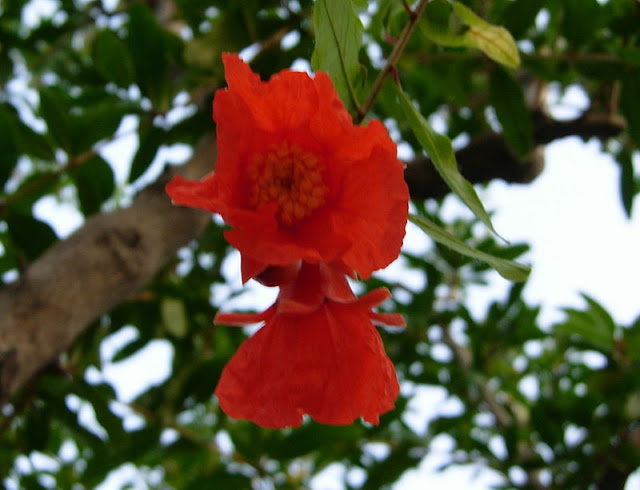The production of pomegranate seed oil
The Pomegranate is a plant of the Punica (Punica) family of Punicaceae (Punicaceae). It belongs to the order Myrtales.
The genus Punica includes two species: Punica Roya or Roica I common (Punica granatum).
It is known by the common names pomegranate, Pomegranate, Pomegranate, and Rubia (in the island of Cyprus, east Mediterranean sea ).
It is cultivated mainly for its fruits, from which refreshing drinks and syrups (grenadine) are prepared, and for ornamental purposes (dwarf and adjacent varieties mostly).
A small farmer produces this oil from the seeds.
Essentially the oil that results from the seed is the gold of the Pomegranate.
We produce it by crushing the seed, an essential ingredient in Pomegranate.
It is the primary raw material for producing anti-cancer drugs and cosmetics.
Describing the process, he explained how
"First, we dry the seed because it must have reached 12-13 degrees of humidity to crush it and produce the pure oil."
"Pomegranate oil is in great demand and dynamic.
France asks us to make contracts for larger quantities of oil that we cannot cover.
To understand the sizes of conversion of production.
From the approximately 1,000 tons of Pomegranate, 400 kilos of oil are produced. "It is valuable, which is why 1 ml of oil costs one euro," he explains.
As described by the president of the industrial unit of pomegranate processing, it "is drinkable, contains vitamin C that protects the heart and arteries, is anti-cancer, and can help regenerate cells. It essentially helps our body's free radicals to acquire antibodies and to be able to fight diseases such as cancer.
The high quality of pomegranate oil is because "in the processing, we make juice after. But, first, we clean the baby from the pomegranate peel, something that the other companies do not do, so we produce pure seed and proceed to the oil production."
Of course, the price increases when the fruits are biologically certified by official biological certification bodies that exist for this purpose in Europe and around the world.
The company that cultivates and utilizes about 12,000 acres of Pomegranate and employs 90 people starts operating amid a crisis.
Today (based in Greece), it exports 95% of its production.
"We produce fresh pomegranates, frozen juice that retains all its nutrients, jam, balsamic, sauce, and our most important product is pomegranate oil.
We export fresh pomegranates and juice to Europe, mainly Germany, Switzerland, Sweden, and Russia.
In recent years we have also been exporting to the Far East, Israel, and Jordan. But pomegranate oil is exported only to France and does not reach… ".
Pomegranate cultivation is profitable for him, as Greece, Italy, and Spain are the only countries where it can be grown in Europe due to climate.
According to the legend, he chose 2009 to invest in the Pomegranate; this unique plant was first planted by the Goddess Aphrodite in Cyprus and managed to conquer the international markets.
This plant Demands a temperate Mediterranean climate.
Write if you want your questions in the comments below; thanks for reading.😊







Comments
Post a Comment